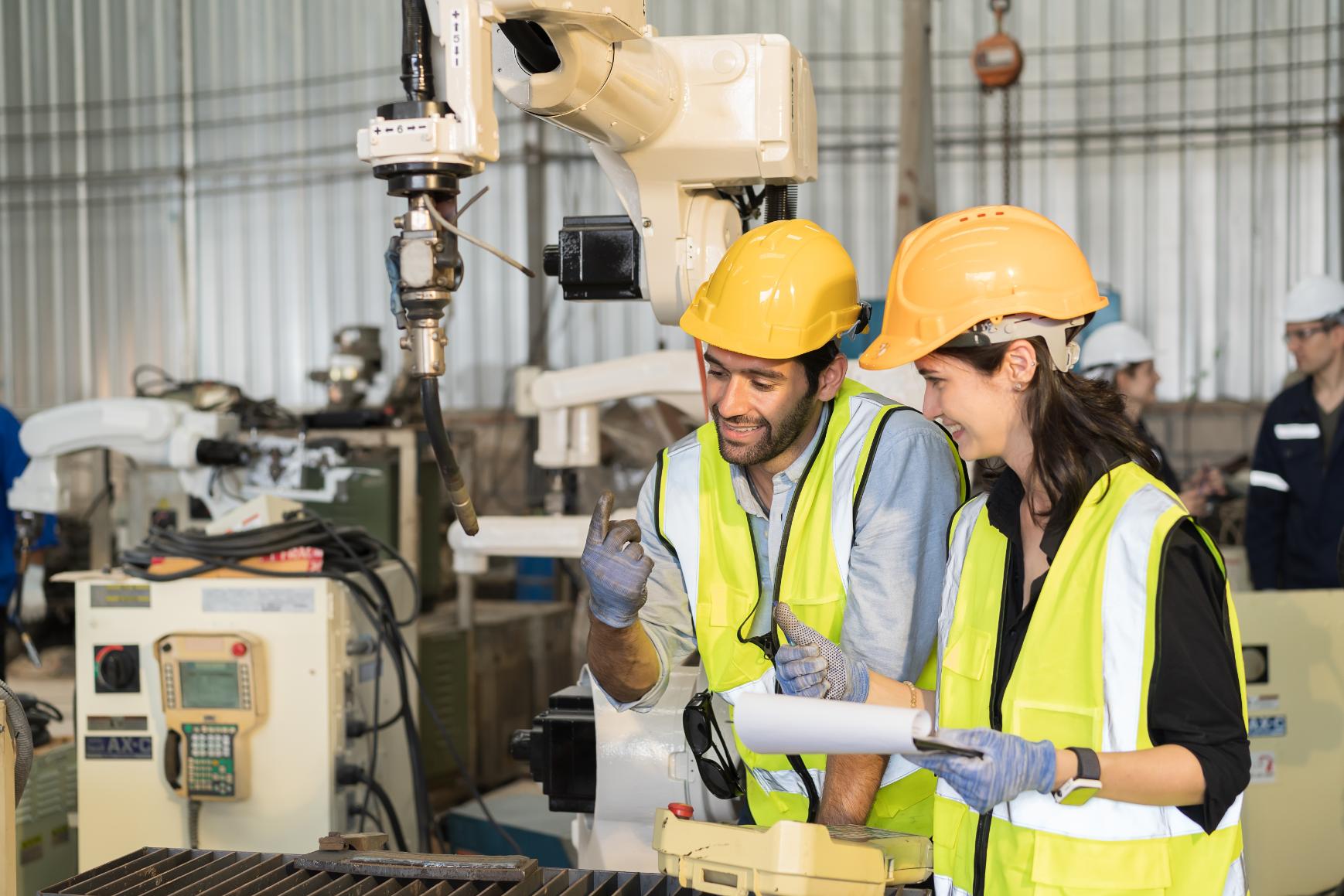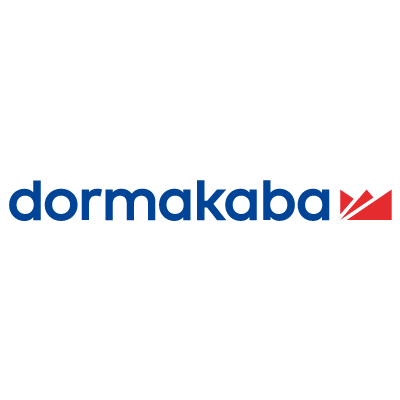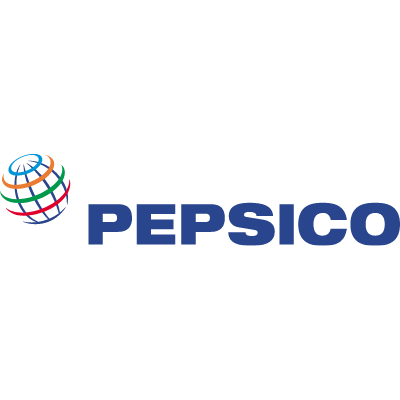Much has been written about applying AI to manufacturing processes, yet practical examples often remain vague or elusive. To address this, we have delved deeper to gather specific implementations of AI in the manufacturing industry. In this article, you will discover how AI can transform even the most complex industrial processes, enabling companies to embrace smart manufacturing.
In particular, we want to share four industry-specific use cases where artificial intelligence has proved its transformative power. They include:
- AI-enhanced oil analysis in the aviation industry,
- self-programming robots for tedious, repetitive tasks,
- optimization of a copper smelting process,
- reduction of costly downtime in a power plant.
Machine learning algorithms in predictive maintenance
Pratt & Whitney Canada, a leading aircraft engine manufacturer, is leveraging machine learning, a type of artificial intelligence (AI), to significantly enhance its oil analysis technology. This innovative approach is part of the company’s comprehensive digital engine health solutions, aimed at reducing maintenance costs and promoting 100% planned maintenance. Traditionally, oil analysis involved manually examining microscopic metal debris from oil-wetted components to detect engine conditions. Experts would analyze data trends and outliers to recommend preventive maintenance actions. However, this method, though effective, was labor-intensive and limited in scope.
The integration of AI has transformed this process. AI’s superior ability to process and analyze vast datasets, including sensor data, far exceeds human capabilities, enabling it to identify complex patterns and anomalies in the data. AI allows for multidimensional analysis, enhancing the precision and accuracy of maintenance recommendations. This technology not only speeds up the analysis process but also improves early detection of engine wear patterns, allowing for proactive interventions and significant cost savings.
AI-driven oil analysis technology offers customers substantial benefits, including faster analysis and earlier detection of potential issues, sometimes up to 1,000 hours in advance compared to only several hundred hours with legacy systems. This improvement has already shown a significant impact, as demonstrated by a major government customer using the technology to maintain its PW210-powered helicopter fleet. The enhanced detection capabilities have led to cost savings by avoiding secondary damage and an improved customer experience.
Last but not least, AI ensures more comprehensive and consistent analysis, reducing subjectivity and optimizing maintenance schedules.AI technology enables more precise scheduling of oil sampling, thereby reducing the frequency of required client interventions.
Read more on AI:
Ten business use cases for generative AI virtual assistants
Generative AI in knowledge management—a practical solution for enterprises
Is ChatGPT dreaming of conquering the world? Generative AI in business
The power of generative AI at your fingertips—Azure OpenAI Service
Unleash your superpowers with new Power Platform AI capabilities
Curbing ChatGPT hallucinations with retrieval augmented generation (RAG)
Self-programming robots in manufacturing processes
Self-programming robots, leveraging artificial intelligence, autonomously generate and execute task plans without predefined programming. They analyze their environment, understand limitations, and adjust their actions in real time. Using 3D vision systems, they perceive and interpret physical details about objects, like size, shape, and position, to perform tasks dynamically. This capability is akin to humans using their eyes and cognitive functions to adapt to changing conditions, and allows robots to automate complex processes with minimal human oversight.
In the manufacturing sector, self-programming robots significantly enhance operational flexibility and efficiency. Traditionally, robotic automation was limited by the need for constant reprogramming and manual adjustments, especially in facilities requiring high task variability. Self-programming robots address this by adjusting their operations on the fly, handling different manufacturing tasks from assembly to complex machining without manual reprogramming. This adaptability is crucial for industries like automotive manufacturing where production lines frequently shift between different models and configurations.
Self-programming robots find extensive application in various manufacturing processes, particularly in areas requiring precision and adaptability:
- Powder coating and painting: Robots can autonomously adjust their techniques for different parts, optimizing paint application, reducing waste, and ensuring consistent quality without human intervention.
- Material handling and assembly: These robots adapt to different product lines by changing grips and tools as needed, learning optimal handling procedures from minimal demonstrations.
- Quality control and inspection: AI-enabled robots can learn to identify defects and quality issues across different products, improving inspection speed and accuracy.
- Maintenance and cleaning: Robots can perform routine maintenance tasks, adapting to new equipment layouts or cleaning protocols autonomously.
These use cases demonstrate how self-programming robots can reduce the need for skilled labor in routine, repetitive tasks, allowing human workers to focus on more complex and creative problem-solving tasks. This shift not only boosts productivity but also enhances worker safety by reducing human exposure to hazardous environments, such as those prevalent in paint shops or when working around heavy machinery.
Optimize manufacturing processes in copper smelting
The Głogów Copper Smelter plays a pivotal role in KGHM’s operations as one of the main facilities for processing copper ore into high-quality copper cathodes and other valuable by-products such as silver and gold. KGHM itself is a global leader in copper and silver production, deeply invested in technological advancement to enhance resource efficiency and productivity. The company’s broader strategy includes continuous improvement of metallurgical technologies and a strong focus on sustainable development practices.
At the KGHM Głogów Copper Smelter, a groundbreaking project has successfully implemented AI solutions to optimize the operation of the suspension furnace, a critical component in the smelting process. This AI solution utilizes historical data to predict and autonomously adjust parameters related to heat losses in the furnace’s reaction shaft, thus enhancing the efficiency of copper smelting.
The AI system employs a combination of predictive algorithms and a control system to manage the operational parameters of the furnace. These algorithms analyze historical operational data to forecast imminent heat losses with nearly 100% accuracy. The control system, equipped with a proportional-derivative (PD) controller and a simulation model, then autonomously adjusts the parameters to mitigate these losses. The PD controller handles parameter changes and preemptive reactions to observed trends, while the simulation model, designed in an autoregressive time series analysis framework, helps in reducing system delays and optimizing the application of changes.
The implementation of this AI solution at the Głogów Copper Smelter has yielded significant benefits:
- Increased operational efficiency: By predicting and automatically adjusting to heat losses, the system ensures optimal furnace operation, which increases the overall efficiency of the copper smelting process.
- Reduced manual intervention: The system reduces the need for manual adjustments by operators. With the AI handling up to 80% of the thermal loss control, operators are freed up to focus on other critical aspects of the smelting process.
- Enhanced product quality and output: With better control over the smelting process, there is an improvement in the quality and quantity of the copper produced.
- Innovation and industry leadership: The project underscores KGHM’s commitment to innovation and industry leadership. By integrating AI into its operations, KGHM not only sets a benchmark for technological advancement in the metallurgy industry but also demonstrates a proactive approach in adopting new technologies to improve both process and economic efficiencies.
AI-driven power plant optimization
SILO, short for Stochastic Immunological Layer Optimizer, is an advanced AI technology developed by Transition Technologies. It leverages a unique approach inspired by biological immune systems to enhance the operational efficiency of power plants. By learning and adapting to fluctuating conditions, SILO autonomously optimizes various parameters like fuel ratios, air flow, and combustion stability, which are critical for maintaining optimal operational conditions and reducing emissions.
At the Rybnik Power Plant, SILO has been instrumental in managing the coal mill, a component known for its susceptibility to breakdowns. The AI system monitors and adjusts the mill’s operations in real time, significantly reducing the incidence of malfunctions. This proactive management helps maintain continuous power generation and reduces costly downtime. The technology has also enabled the plant to maintain precise control over steam temperature and emission levels, resulting in annual savings of approximately 1.12 million PLN and significant reductions in annual CO2 emissions (by 4,380 tons) and ammonia emissions (by 665 tons). These results highlight the potential of AI to revolutionize energy management and operational efficiency in the power generation sector.
AI systems in your manufacturing company
These four examples illustrate that successful deployment of AI-powered solutions requires a combination of domain-specific expertise and experience in building AI systems. This blend of knowledge is best developed through direct collaboration with clients in the manufacturing sector.
At Fabrity, we have established a strong track record in enhancing manufacturing operations through innovative IT solutions. We excel in deploying technologies such as IoT, predictive maintenance, and automation to help manufacturers boost efficiency and minimize downtime. Additionally, we utilize generative design software to create optimal designs for distribution to multiple facilities, leveraging large volumes of materials data for additive manufacturing.
Based on our extensive experience, we have developed an AI-powered platform specifically designed for knowledge management in manufacturing companies. This platform harnesses the power of large language models (LLMs) and a retrieval augmented generation (RAG) mechanism, enabling employees to swiftly retrieve information from complex knowledge bases. It ensures that the information provided is accurate and reliable, with a zero incidence of the common generative AI pitfall known as “hallucinations.”
Our platform helps organizations consolidate their scattered internal knowledge, which is often difficult to manage and spread across various systems. It is particularly useful for managing technical documentation and streamlining workflows for employees, whether they are on the production line or in design departments.
It also incorporates inventory management capabilities, allowing AI systems to track supplies, send alerts for replenishment, and predict the impact of delays on production. Furthermore, it enhances supply chain management by tracking defective hardware and streamlining the recall process from dealerships.
To discover the transformative potential of AI-powered solutions within your organization, we invite you to explore a customized demo of our platform, tailored to meet your specific business needs. Here is how the process works:
First, we analyze your potential use case, whether it involves technical documentation, product databases, or internal knowledge bases. Next, we collaborate closely with you to collect the relevant source materials needed to train the platform. We then set up the necessary infrastructure and calibrate the language model with your proprietary data using proven RAG techniques. This is followed by rigorous testing and optimization to fine-tune the solution’s performance.
The entire process, from gathering your data to delivering a fully customized generative AI demo, typically takes about two to three weeks. Do not let your organization fall behind—unlock the future of conversational AI today. Schedule a demo and let us streamline your manufacturing processes.
Please contact us at sales@fabrity.pl to discuss all the specifics and get started.









